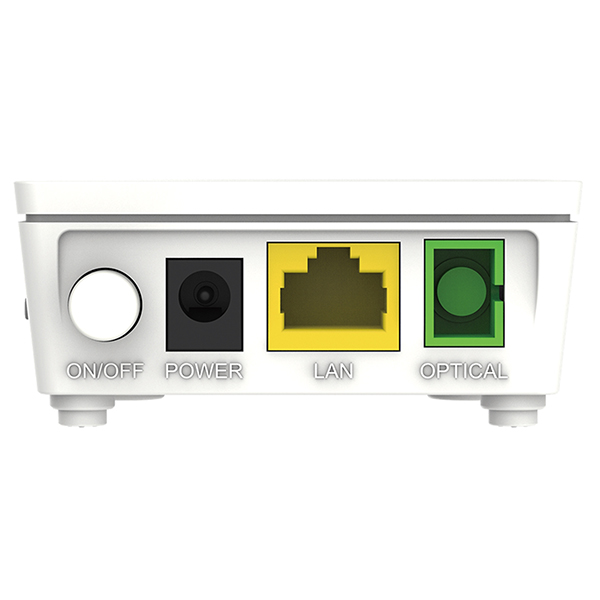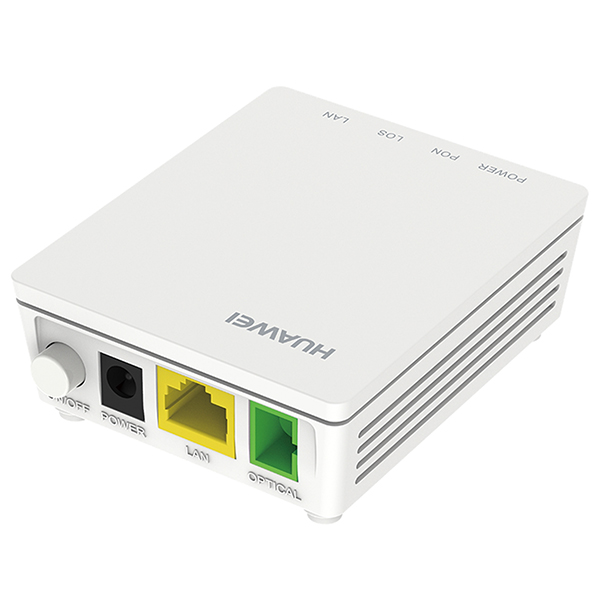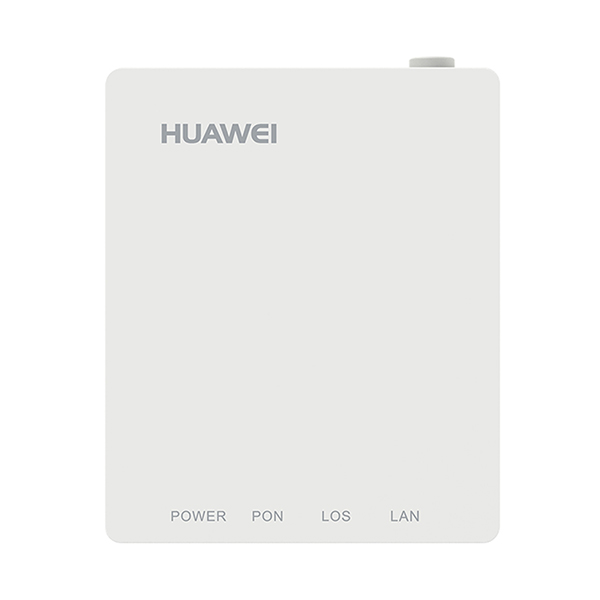EG8010H Huawei GPON ONU



Description:
The Huawei EG8010H subscriber terminal is used as a client device for the construction of FTTH networks and is designed to provide broadband access services based on GPON technology in residential buildings and small offices. This terminal supports one PON connections at a distance of up to 20KM. Terminal EG8010H is equipped with PON and Ethernet GE ports with auto-negotiation for high-speed forwarding.
Device Parameters:
| Dimensions (HxWxD) | 82*90*27mm | System power supply | 11-14 V DC, 0.5A |
| Weight | <500g | Static power consumption | 3W |
| Operating Temperature | 0℃ to +40℃ | Maximum power consumption | 3.5W |
| Operating Humidity | 5% RH to 95% RH | Ports | 1GE |
| Power adapter input | 100-240V AC, 50-60 Hz | Indicators | Power/PON/LOS/LAN |
Interface Parameters:
GPON Port
- Class B+
- Receiver sensitivity:-27dBm
- Wavelengths: US 1310nm, DS 1490nm
- Flexible mapping between GEM Port and TCONT
- GPON: consistent with the SN or password authentication defined in G.984.3
- Bi-directional FEC
- SR-DBA and NSR-DBA
Ethernet Port:
- Ethernet port-based VLAN tags and tag removal
- 1:1 VLAN, N:1 VLAN, or VLAN transparents transmission
- QinQ VLAN
- Limit on the number of learned MAC address
- MAC address learning
- Transparents transmission of IPv6 packets at Layer2
Smart O & M:
- Variable-length OMCI messages
- Active/Passive rogue ONT detection and isolation
- PPPoE/DHCP simulation testing
QoS:
- Ethernet port rate limitation
- 1p priority
- SP/WRR/SP+WRR
- Broadcast packet rate limitation
- Flow mapping based on the VLAN ID, port ID, or/and 802.1p
Power Saving:
- Indicator power saving
- Power consumption reduction of idle components in power-saving state
- COCV4
Security:
- MAC address filtering
Common O & M:
- OMCI/Web UI
- Dual-system software backup and rollback
- 1ag Ethernet OAM
- Optical link measurement and diagnosis
- Loopback check
Multicast:
- IGMP v2/v3 snooping
- MLD v1/v2 snooping
- Fast leave
- VLAN tag translation, transparent transmission and removal for downstream multicast packets
- IGMP/MLD protocol packet rate limitation
